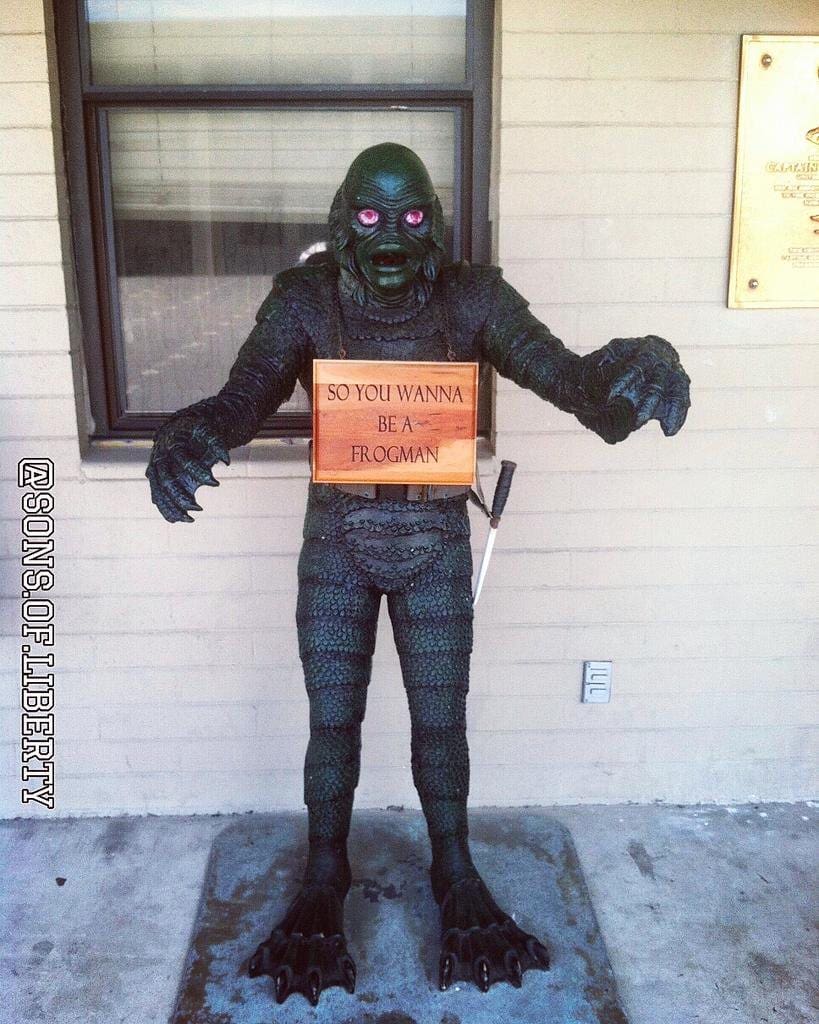Many marine animals use toxins for self-defense or to prey on other animals. When direct contact is made is when the venom/toxin is injected by bite, puncture or sting.

Injuries mostly occur as divers are entering or exiting the water. If you are climbing out of the water onto some rocks and the surf is pushing, you around or you are climbing up on a pier. They can also happen when a diver accidentally or deliberately attempts to handle an animal. Like when someone says “hey I bet you can’t lick that sea urchin.”
You should know where you are diving what animal are in the water. So, make sure you study what is native to the area that you are diving in. It doesn’t mean that something that is supposed to be in the water won’t be there. Someone was stung by a box jellyfish in Hawaii, and they are only native to Australia.
Jellyfish or Jellies
Flushing the sting with salt water, remove tentacle pieces with tweezers or a gloved finger. Once all the tentacles have been removed, apply an ice pack to reduce inflammation and pain. Never urinate on a jellyfish sting. Well Unless you are into that stuff. But it won’t help the pain. Vinegar was recommended for used to rinse the affected area. But it has been found out that vinegar, may activate stinging cells that haven’t fired yet. So, it is up to you if you want to try that. Most jellyfish stings are minor and require only basic first aid. But some stings can be severe or even fatal. The Box jellies are one of if not the deadliest animal in the world. If you experience chest pain, difficulty breathing, or if a large area of your body was stung, seek medical help immediately. If you were diving in an area that had a lot of jellies, make sure you raise off your wetsuit before you take it off if you can. Jellies are like poison ivy, they can still infect you after it is removed and just hanging out on your gear. It will be dry, you will throw it on your shoulder and get stung
Sea urchins
Remove any spines that are visible in the wound with tweezers or a knife. If the needles have penetrated deep into your skin, a doctor may need to remove them. Soaking the affected body part in hot water helps to relieve pain. You can also take nonsteroidal anti-inflammatory drugs. If you notice signs of an allergic reaction, such as difficulty breathing or chest pain, seek emergency medical help.
Stingrays
If you are stung by a stingray, call an ambulance immediately. If a spine is embedded in your skin, it’s best to leave it in. You can rinse the area with salt water to remove any sand or debris. Usually, the sting is very painful. Standard first-aid treatment includes immersing the affected area in water that is as hot.
Don’t take any of these situations lightly as you never really know how your body will react.
Coral cuts and abrasions
These are one of the most common diver injuries. Coral scrapes can occur whenever a diver makes contact with the reef. Coral is often sharp, and those who get cut will find that they take a long time to heal, and often become infected. To treat coral cuts and abrasions, first, stop the bleeding, make sure to remove any remaining coral fragments by flushing with clean, fresh water. Use antibacterial soap or hydrogen peroxide mixed with water to disinfect the wound. Finally, rinse again with fresh water.
How to avoid this
Since most of this happens when you are getting into or out of the water. (getting in and out at a beach/ shallow water). You should shuffle your feet to help avoid stepping directly on something. The animal should feel you coming and get out of the way. Don’t touch marine animals, even if they are dead. This includes pieces of them. A tentacle can still be dangerous even when they are no longer attached to the animal. As an old E8, I say this with love, please don’t bet your buddy that he can hold or eat it. It’s all fun and games until someone gets hurt, then it’s just fun.
Skin protection
Clothing can help protect you against stings from creatures and scratches from coral. Wearing shoes in the water is always a good idea especial if you are walking into the water. In the old day’s guys would wear blue jeans when working around coral to help protect them from it. That is the same reason some people in Vietnam wore jeans. Because the jungle is basically like being in the water. Everything wants to kill you. Everything wants to kill you and does want to be messed with. Keep in mind that some creatures have spines that can pierce your shoes or wetsuit. I did not talk about everything in the water that you might come in contact with. I just when over the most common animals that divers encounter.
Lastly, there are a lot of parts of the world where you will dive (this is military diving, not recreational diving) there might also be other things in the water, like glass, barb wire, spikes and anything you can think of. So, make sure you do a proper study of the area and of the tactics that are being used by the people you are going against and what they are most likely to try to stop combat swimmers.


‘Someone was stung by a box jellyfish in Hawaii, and they are only native to Australia.’
Shows you how big they are.